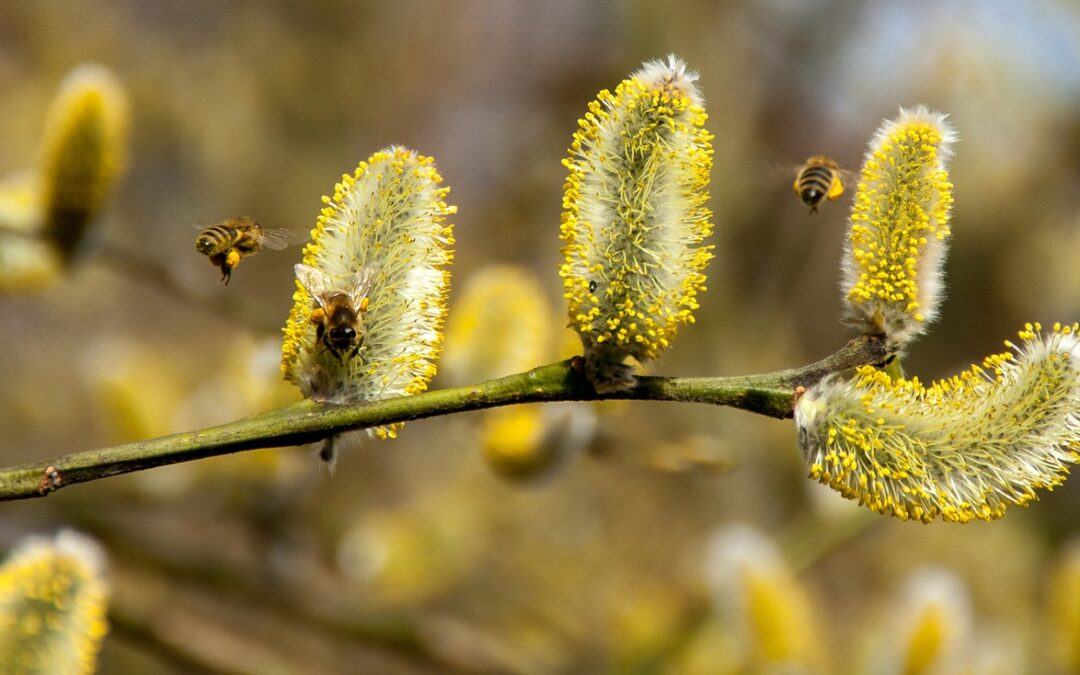We are an Acupuncture and Functional Medicine Clinic in Franklin that treats Allergies!
When it comes to allergies, we see a lot of them in Tennessee! The itchy eyes, runny nose, sneezing, itching, hives, post nasal drip, congested sinuses, and intense headaches and migraines. What exactly causes these anyhow?
There are a number of different irritants in the Franklin TN and Nashville area from pollens, hay, grass, but also because it rains so much in Tennessee giving us the beautiful green grass, we also have a lot of mold. Mold is a pathogen that grows in the outdoors and with water and food (which can be grass, wood, dust), mold spores TNourish and TNoat around through the air. Our first line of defense for aerosols is the nose. Pollens, Molds, and grass TNy through the air and end up in our nasal cavity as the immune system tries to block it from further entry.
The respiratory epithelium is lined with cilia, small hair-like projections that help the body to clear mucus. Within the mucus blanket lies dirt, debris, pathogens and other toxins that have entered the paranasal sinus cavity. The cilia are important because they use a coordinated wave-like movement to transport the toxins that are in the mucus blanket overlying the respiratory mucosa to the gastrointestinal tract for ingestion and elimination. This is the primary way that the airway and first line of the immune system clears allergens, debris and toxins. Those individuals with chronic allergies, typically have a ciliary dysfunction where it impairs the immune defense. This can be from:
- A genetic mutation where the cilia are abnormal in structure and function.
- The result of environmental toxins, infections, or inTNammatory stimuli that disrupt the normal cilia motility.
People with chronic rhinosinusitis have an inability to properly clear mucus. It has also been found that inTNammation and chronic inTNammatory factors impair the body’s ability to clear mucus. Not only does it clear toxins from the nasal cavity, but it clears it from the mucus blanket in the upper airway. The ‘mucus blanket’ is produced by the body’s own goblet cells, possessing a gel-like composition which help tremendously for clearing. This mucus contains sodium chloride, free protein, carbohydrate rich glycoproteins, water and innate immune proteins such as lactoferrin, lysozyme and immunoglobulins which help the immune system. The mucus contains glycosylated macromolecules that form a tangled network of polymers that help to trap inhaled debris.
It is said that disease states can disrupt the structure of mucus by disrupting the ion transport mechanism. Cystic fibrosis is an example of a disease caused by a gene mutation that causes abnormal mucus and mucociliary dysfunction. Smoking has also been shown to cause a cilia dysfunction leading to a thicker mucus that is not able to be cleared properly.
Individuals who experience continuous cycles of infection and inTNammation have shown to have cilia loss as well as a thickened mucus blanket. Pollutants and microbes can also impact cilia function. Often cilia who do survive the microbial and inTNammatory factors, do not function properly often causing a stunted ciliary response. However, it has been stated that this negative effect can be reversed once the tissue is removed from the infected and inTNamed sinus cavity. Bacterial pathogens such as staphylococcus aureus and streptococcus pneumonia and others have been found to produce specific toxins to impair ciliary motion and coordination. Viruses have found a way to disrupt the microtubule dysfunction allowing pathogens to colonize the upper airway.
Cigarette smokers have shown to have a decreased number of cilia, as well as increased mucus production. It is no surprise that those who smoke seem to get more respiratory infections.
This idea of decreased cilia also leads to a hypothesis that pathogenic fungal spores in homes can cause cilia dysfunction and decreased numbers. After all, fungus depletes hair growth and cilia are hair-like projections. If cilia are not present, this allows for toxins, debris and pathogens to move freely through the sinus cavity vs getting trapped and being sent to the GI tract for elimination. If these toxins are in fact going to the sinus cavity, because the dorsal end of the sinus leads directly to the transverse veins, that go to the jugular which leads to the heart and lungs for reoxygenation, this means that pathogens can get into the bloodstream, with the first line of defense in the sinuses being impaired.
With so many pathogens and allergens in the Nashville and Franklin TN area, it is no wonder that chronic sinusitis is so prevalent. This is why it is important to make sure that your home is free of mold, water intrusion, and other toxins that could impair the cilia. Also it has been found that sino-nasal saline lavage is an effective remedy for removing toxic material in individuals with a hindered mucociliary clearance and helping to restore cilia function. We also offer Functional Medicine and Acupuncture in Franklin TN for allergies and chronic sinusitis.
Acquired cilia dysfunction in chronic rhinosinusitis – PMC (nih.gov)
